Former students share their experiences of the world of work, and reflect on the benefits of studying History of Art at the University of Warwick.
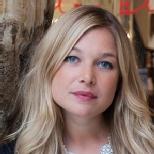 Role: Contemporary Art Director, The Fine Art Society plus Tutoring in Art History and TV presenting
Role: Contemporary Art Director, The Fine Art Society plus Tutoring in Art History and TV presenting
My term spent in Venice with Warwick secured my first step on the career ladder as an occasional tutor for Art History Abroad (AHA) who run grand tours of Italy. This allowed me the relevant speaking, researching and presenting experience to get the position of Exhibition Assistant on the Michelangelo Drawing exhibition at the British Museum. I always found the small seminars at Warwick a great place to develop a no-fear approach to public speaking and it has been a feature of all of my jobs. The fairly auto-didactic nature of the degree also meant that I am completely self-reliant and able to motivate myself to read and digest new material, which I do on a very frequent basis. Kate Bryan
 Role: Human Resources Graduate, UBS Investment Bank
Role: Human Resources Graduate, UBS Investment Bank
Having graduated with a degree in History of Art working for an Investment Bank was not an obvious choice. I did curatorial work at Harewood House Stately Home in Yorkshire, internships for 2 years at Christie’s auction house in the Impressionist and Modern Art Department and also worked as a Gallery Manager in a Contemporary Gallery in the South of France. I became aware of the world of Investment Banking after learning of friends internship experiences and decided to try it. I feel that being exposed to the work undertaken by an organisation such as UBS will provide me with a level of knowledge that will be invaluable in any career that I wanted to pursue. Tara Lawrence
R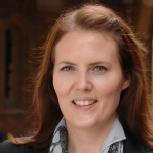 ole: Project Manager, World Monuments Fund
ole: Project Manager, World Monuments Fund
My Warwick degree gave me the opportunity to explore several different areas of art history and sparked my interest in architectural history which ultimately led to my career in the historic environment. Without the degree as a foundation, it would have been much harder to work in the heritage sector. Also, the competition for the limited number of jobs in the sector means that having a good degree from a good university helps to place you more competitively in the job market. Melissa Marshall
 Role: Senior Coordinator in Corporate Communications, Christie’s
Role: Senior Coordinator in Corporate Communications, Christie’s
My interviewers at Christie’s commented on my Warwick degree, recognising the University and the field I studied. Both made me a desirable candidate and I believe they helped open doors for me. Once in I had to prove my worth. I believe that studying for my degree greatly improved my writing style and so I was able to hit the ground running when I joined Christie’s. The Warwick Career’s centre was a huge help in setting me up for the future. They advised me on my CV, secured me a bursary to cover my travel when I had a work experience placement during the vacation and advised me on writing applications. Katy Richards
 Role: Gallery Manager, The Strand Gallery
Role: Gallery Manager, The Strand Gallery
My Warwick degree helped me become an organised and driven individual, as well as giving me the confidence and knowledge to pursue my career. The analytical and communication skills I gained allow me to communicate clearly and efficiently, not only with clients but also within the work place when sharing ideas and working in a team. Despite my career only being at the early stages, I hope to develop further and reach higher goals. The abundance of knowledge I gained through my Warwick degree has kept my interests and passion for the subject alive. Jessica Tamman
 Role: Co-Founder and Director, Abcum and Director , Sport4Health
Role: Co-Founder and Director, Abcum and Director , Sport4Health
Jaime discovered his designing skills at Warwick producing flyers and brochures for some of the clubs of which he was a member. On moving to London, he found himself being asked to do designs for websites and enlisted his brother to support him on the technical side of website creation. Things rapidly moved towards setting up a partnership and a commercial website design business was started. The business evolved into one specialising in software development, and has grown beyond the brothers' wildest imagination now selling home-grown products internationally. Jaime Morgan Hitchcock
 Role: Marketing Officer, National Portrait Gallery, London
Role: Marketing Officer, National Portrait Gallery, London
Working with the Collection and exhibitions on a daily basis, particularly when selecting lead images and writing marketing copy, I rely heavily on my art history knowledge and academic experience. It is also owing to my passion for the arts, developed through my degree, that I really enjoy the work that I do and I feel extremely privileged to be in a position to introduce new audiences to the Gallery. Experience of meeting deadlines, having to work hard and be pro-active are all aspects that I developed during my time at Warwick and form an important part of how I approach day-to-day tasks. Claire Jackson
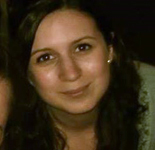 Role: Marketing Executive (Parts & After Sales), Aston Martin
Role: Marketing Executive (Parts & After Sales), Aston Martin
Having a degree from Warwick has great credibility and certainly seems to open doors. From a History of Art perspective there’s definitely been a number of benefits and transferable skills for a career in marketing. Analytical skills combined with a strong visual acuity and attention to detail have all proved invaluable for me in marketing, whether that’s writing copy for brochures, websites and press releases, analysing data to inform marketing plans or providing creative direction on photo shoots. Although I haven’t pursued a directly art-related career I certainly feel that my degree helps when you work for one of the most beautiful car brands in the world! Lucy Blanchard
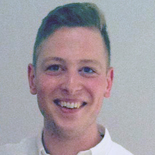 Role: Exhibitions Manager, Pippy Houldsworth Gallery
Role: Exhibitions Manager, Pippy Houldsworth Gallery
Studying at Warwick gave me the necessary research skills to work as curator on a day-to-day basis, from researching potential artists to writing academic texts for gallery publications. During my time at Warwick I also had the opportunity to curate an exhibition in collaboration with Leamington Spa Art Gallery & Museum, using works of art from the Arts Council Collection and the University of Warwick Collection. Along with working at the Mead Gallery, which has strong ties with the HoA department at Warwick, both experiences affirmed my belief that I wanted to pursue a career in curating. Jon Horrocks
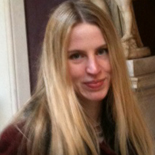 Role: Events and House Opening Co-ordinator, Althorp House
Role: Events and House Opening Co-ordinator, Althorp House
Warwick helped me to develop a solid general competency which was beneficial to starting in the working world. My job involves organising and managing events; private events for the Spencer family; planning and visitor management during the public opening season from May to September; planning public events; PA duties to Lord Spencer. Sophie Slater
 Role: Administrator, Modern British and Irish Art Department, Christie’s
Role: Administrator, Modern British and Irish Art Department, Christie’s
As an administrator I coordinate all four Modern British and Irish Art sales a year. Warwick is a good university and employers know this. I have been quite lucky, because I managed to get a job which is directly linked to my favourite period of art. I studied about modern British art during the 1930s in my final year and now I sell artworks by artists I have written essays on. Krassi Kuneva
 Role: Learning Coordinator, Watts Gallery Estate
Role: Learning Coordinator, Watts Gallery Estate
The internship I completed in the summer of 2012 was advertised through Warwick careers and the experience I gained in administration was invaluable when applying for my role at Watts Gallery. I did the module ‘British Perceptions of Venice’ in my final year and I was so glad to have basic knowledge of Victorian Art when I started my job. Working in a relatively small gallery has meant that I have been given more responsibility earlier on and also means that my job is far more varied day to day than it would be in a large gallery. Lucy Cordingley
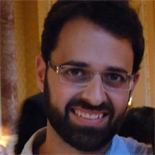 Role: Director of Magic Lantern and Freelance Film Publicist
Role: Director of Magic Lantern and Freelance Film Publicist
Studying Art History at Warwick was not just an incredibly enjoyable way to spend my three years at university but it has been invaluable for my subsequent career. I use the subject knowledge and skills directly in my job running education charity Magic Lantern: We give interactive art history presentations to schoolchildren and adult groups to show that anyone can engage with and enjoy art. Equally useful to my career, however, is everything else that studying Art History gave me. The degree was an exciting visual gateway to almost every subject imaginable including history, geography, religion, philosophy and sociology. It also helped with intangible skills such as communication, observation and critical thinking – skills that have held me in good stead with everything I've ever done since including in my second career as a freelance film publicist. Matthew Sanders
 Role: Contemporary Art Director, The Fine Art Society plus Tutoring in Art History and TV presenting
Role: Contemporary Art Director, The Fine Art Society plus Tutoring in Art History and TV presenting  Role: Human Resources Graduate, UBS Investment Bank
Role: Human Resources Graduate, UBS Investment Bank  ole: Project Manager, World Monuments Fund
ole: Project Manager, World Monuments Fund  Role: Senior Coordinator in Corporate Communications, Christie’s
Role: Senior Coordinator in Corporate Communications, Christie’s  Role: Gallery Manager, The Strand Gallery
Role: Gallery Manager, The Strand Gallery  Role: Co-Founder and Director, Abcum and Director , Sport4Health
Role: Co-Founder and Director, Abcum and Director , Sport4Health  Role: Marketing Officer, National Portrait Gallery, London
Role: Marketing Officer, National Portrait Gallery, London  Role: Marketing Executive (Parts & After Sales), Aston Martin
Role: Marketing Executive (Parts & After Sales), Aston Martin  Role: Exhibitions Manager, Pippy Houldsworth Gallery
Role: Exhibitions Manager, Pippy Houldsworth Gallery  Role: Events and House Opening Co-ordinator, Althorp House
Role: Events and House Opening Co-ordinator, Althorp House  Role: Administrator, Modern British and Irish Art Department, Christie’s
Role: Administrator, Modern British and Irish Art Department, Christie’s  Role: Learning Coordinator, Watts Gallery Estate
Role: Learning Coordinator, Watts Gallery Estate  Role: Director of Magic Lantern and Freelance Film Publicist
Role: Director of Magic Lantern and Freelance Film Publicist 